
Click on each tab to learn more about self-care!
Breathing Techniques
Intro Post:
Focusing on your breathing is a great way to control stress and improve your mental health. Try these techniques from copingforkids.com.
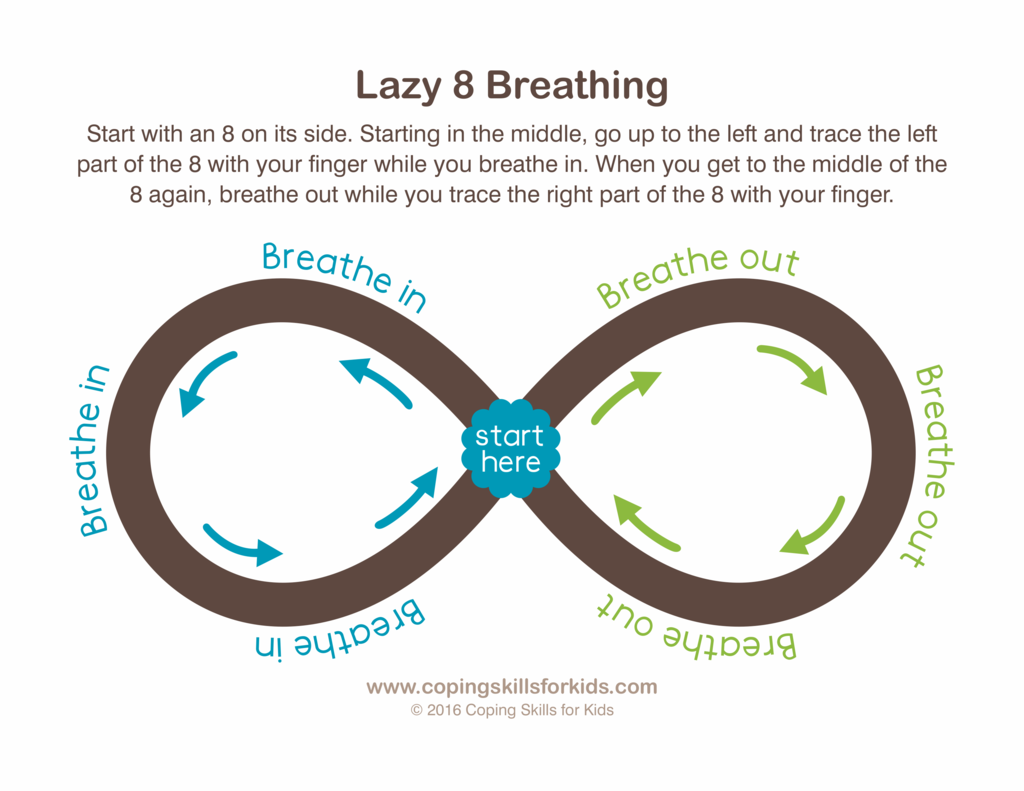
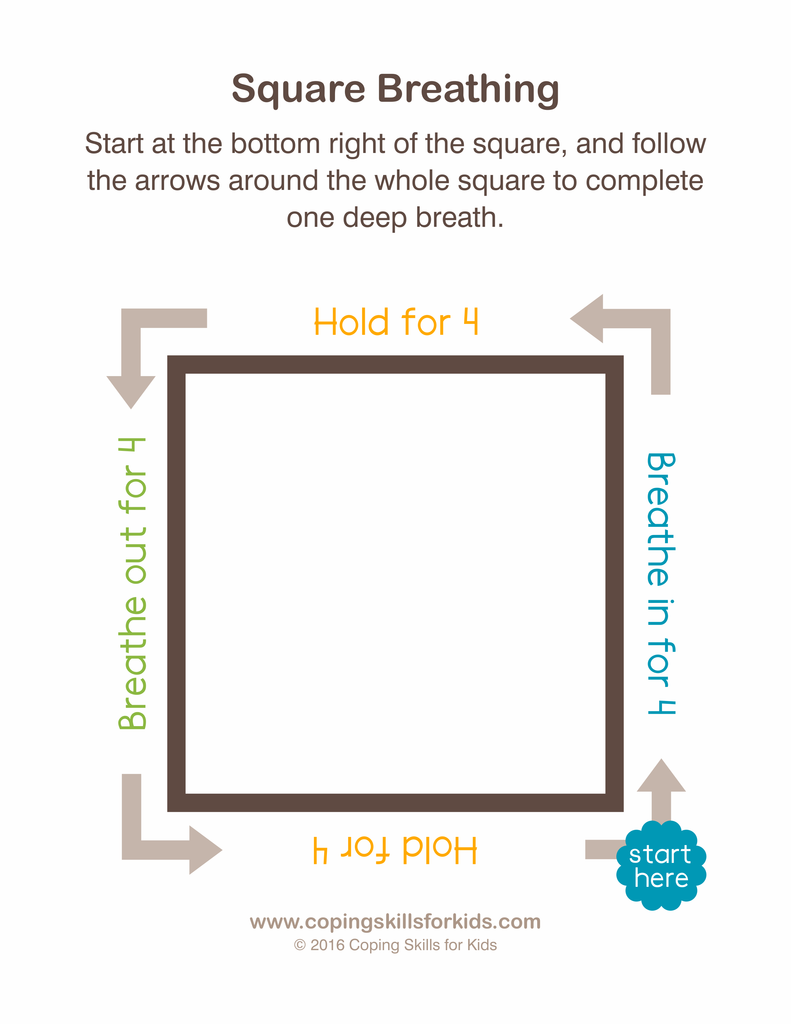
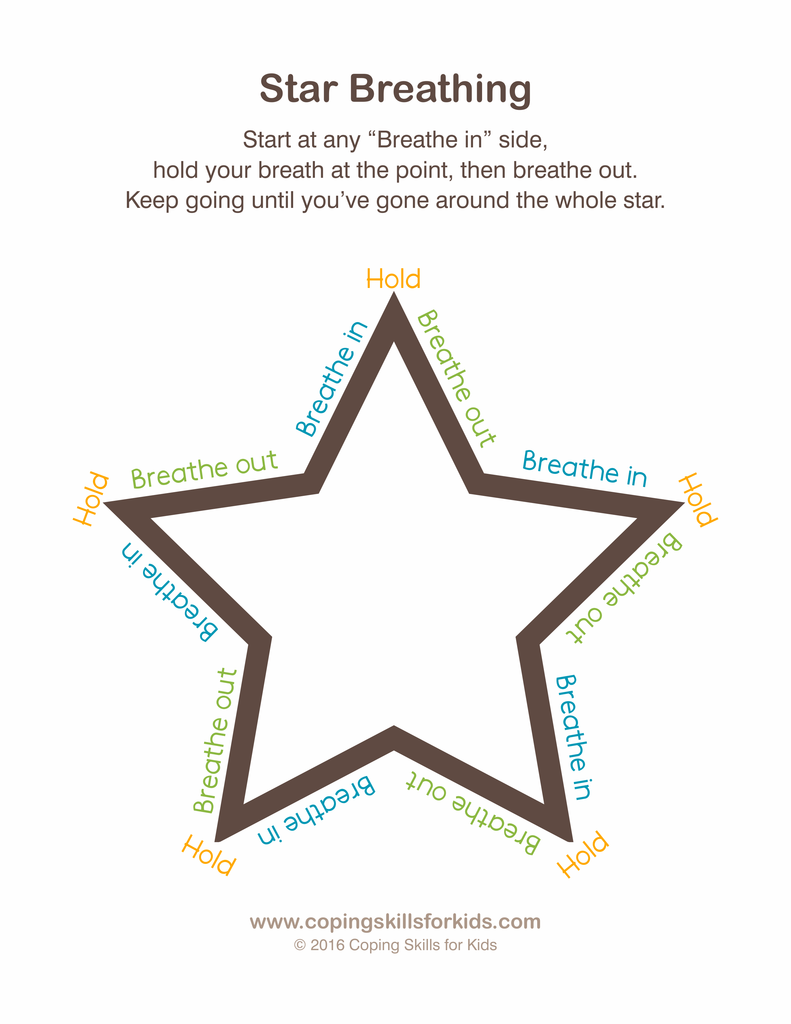
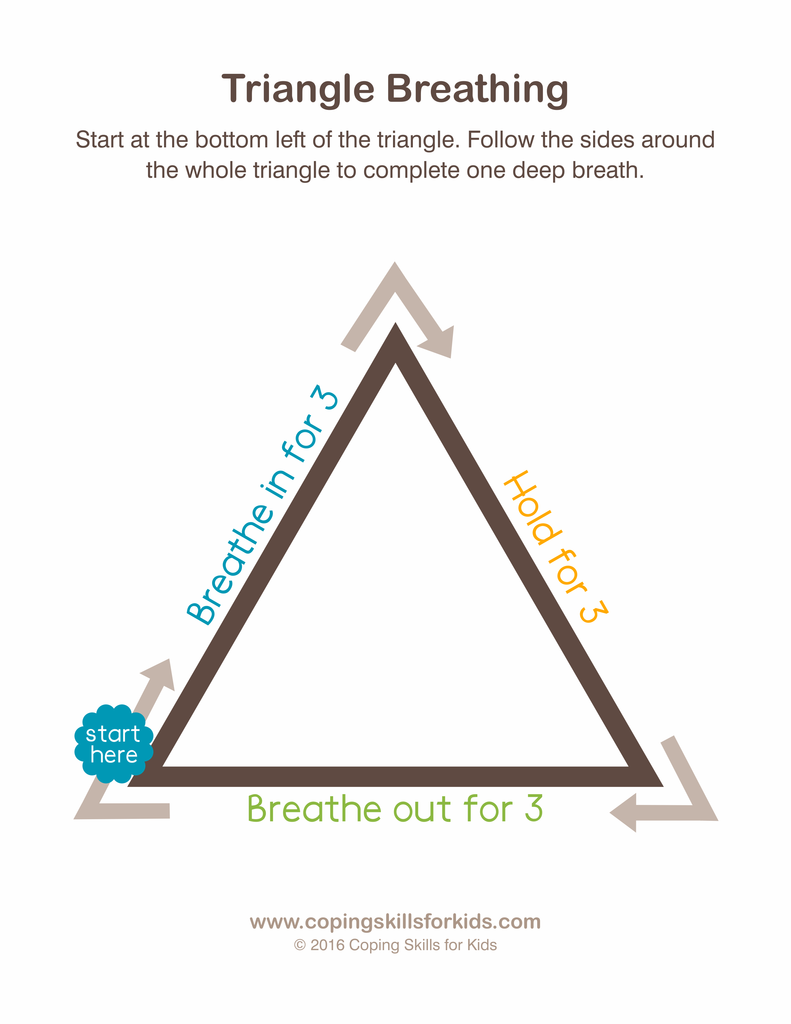
Video and Action Post:
Give it a try! Use a paced breathing technique every day for a week.
4-7-8 breathing technique by Dr. Weil https://youtu.be/gz4G31LGyog
Website/Article/Email:
Mental Health Benefits of Deep Breathing
We all breathe AND we can use breath to enhance our mental health. There are significant physical and mental health benefits to intentional deep breathing exercises.
Benefits include:
- Relieves stress
- Reduces body tension
- Helps you be mindful
- Improves memory
- Boosts cognition
- Promotes good sleep
- Reduces pain levels
- Enhances ability to learn
- Reduces anxiety
- Reduces depression
- Improves self-image
You can choose the breathing exercise that works best for you – and several have research of improved wellbeing with regular use.
Here are a few breathing strategies (visuals above):
- Paced breathing
- lazy 8 breathing, square breathing, triangle breathing or star breathing.
- hand breathing (trace hand as you breath)
- 4-7-8 breathing – or other counting breathing
- Belly Breathing – breathe in nose (as if smelling hot cocoa), wait, breathe out slowly (as if blowing off hot cocoa)
- Visualization breathing – such as inflating a balloon
From https://www.calmsage.com/health-benefits-of-deep-breathing/ and https://www.livestrong.com/article/13727126-breathing-exercises-for-stress/
Connectedness
Intro Post:
When we cannot connect face to face, it is important to find ways to connect to others. Connect virtually with telephone calls, video calls, texts, chat/support groups, online activities and meetings and other positive social media. You can even go the “old fashion” route – and write letters…. A great way to connect!
.png)
Video with Action Item:
Website/Article/Email:
The Importance of Connection and Belonging
“The subjective experience of feeling close to and a sense of belongingness with others.”
• Lowers levels of anxiety and depression
• Creates better emotional regulation
• Improves self-esteem
• Fosters greater empathy
• Increases trust
• Improves cooperation
• Builds stronger immunity
• Increases longevity
When we cannot connect face to face, it is important to find ways to connect to others. Connect virtually with telephone calls, video calls, texts, chat/support groups, online activities and meetings and other positive social media. You can even go the “old fashion” route – and write letters…. A great way to connect!
https://emmaseppala.com/connect-thrive-infographic/
Emma Seppälä, Ph.D, is Science Director of Stanford University’s Center for Compassion and Altruism Research and Education and the author of The Happiness Track (HarperOne, 2016).
Control

“If there is no solution to the problem then don’t waste time worrying about it. If there is a solution to the problem, then don’t waste time worrying about it.”
― The Dalai Lama
5 things you control every day:
- Your attitude
- Your words
- Your actions
- Your reactions
- Your efforts
Article
https://psychcentral.com/blog/coping-with-what-you-cant-control/
Video
https://www.youtube.com/watch?v=HMStQ6CT-GQ&feature=youtu.be
Creativity
Intro Post:
Whether participating or observing – art, music, performance, writing and all forms of creativity have a positive effect on mental wellbeing.
- Promotes self-discovery
- Allows self-expression
- Provides emotional release
- Reduces stress
- Offers distraction – a positive coping strategy
- Engages Senses –a positive coping strategy
- Soothes the body and mind
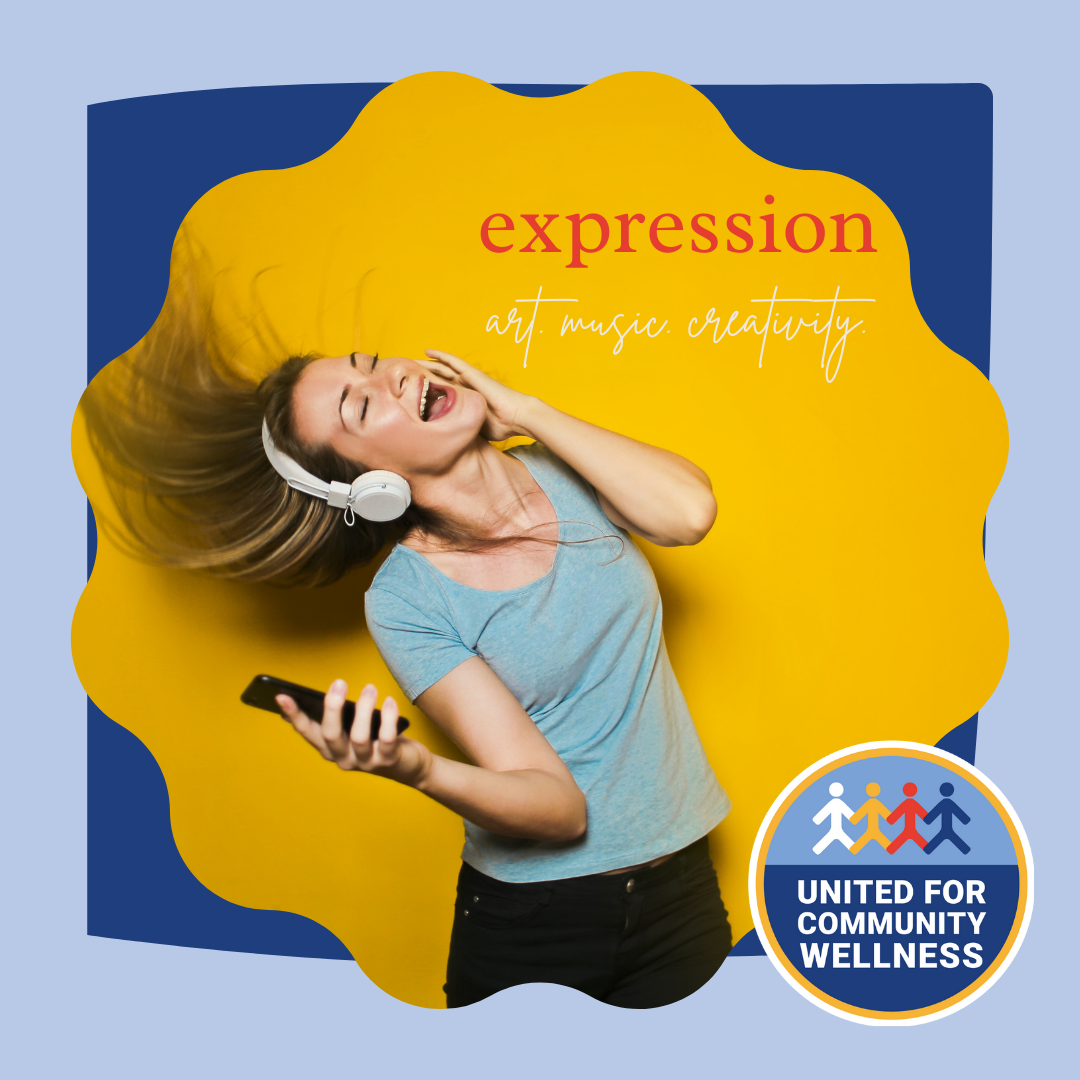
Video:
We miss you, we miss sharing music together in person, but we know we’ll be back together celebrating music together again soon.
Action Post:
What song ALWAYS makes you smile?

Website/Article/Email:
Creativity as a wellness practice
https://www.psychologytoday.com/us/blog/arts-and-health/201512/creativity-wellness-practice
Gratitude
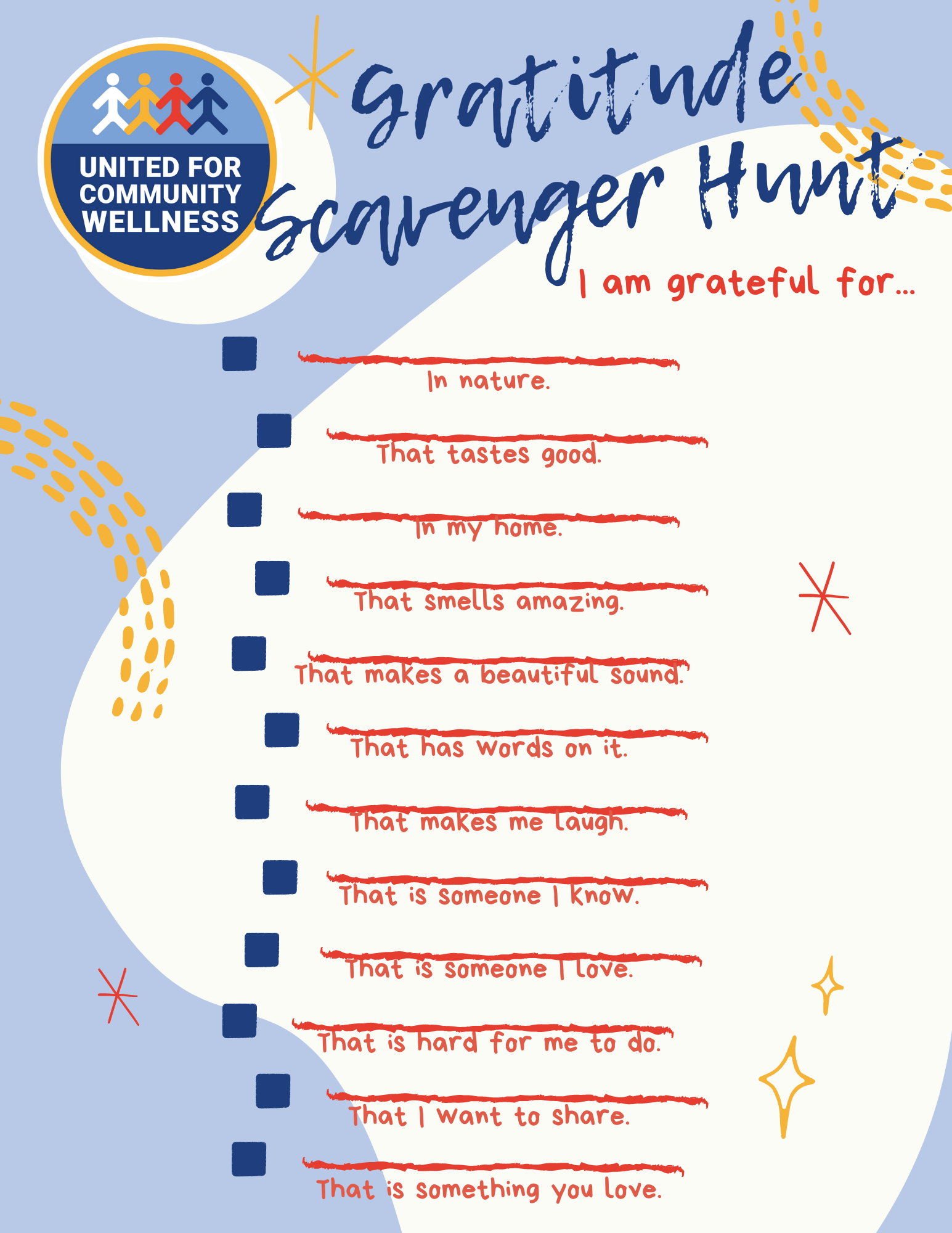
Exercise
Intro Post:
10 ways exercise impacts mental wellness
- Increases energy levels
- Promotes better sleep
- Reduces anxiety and depression
- Increases attention/concentration
- Improves learning
- Reduces stress
- Improves confidence
- Increases positive mood
- Increases sensory stimulation
- Boosts autonomy/independence

Video:
Action Post:
We know that physical activity helps improve overall wellness… including mental wellness. Comment below: What is your go to activity? Do you have a favorite park or trail? Do you have an accountability partner?

Website/Article/Email:
Exercise and physical activity impact more than fitness and weight.
Exercise and movement improve overall wellness – including mental wellness.
10 ways exercise impacts mental wellness
- Increases energy levels
- Promotes better sleep
- Reduces anxiety and depression
- Increases attention/concentration
- Improves learning
- Reduces stress
- Improves confidence
- Increases positive mood
- Increases sensory stimulation
- Boosts autonomy/independence
Nutrition
Facebook or Instagram Post:
Did you know that a diet rich in fresh fruits and vegetables, whole grains and lean proteins can help to improve your overall mood and general feelings of happiness?
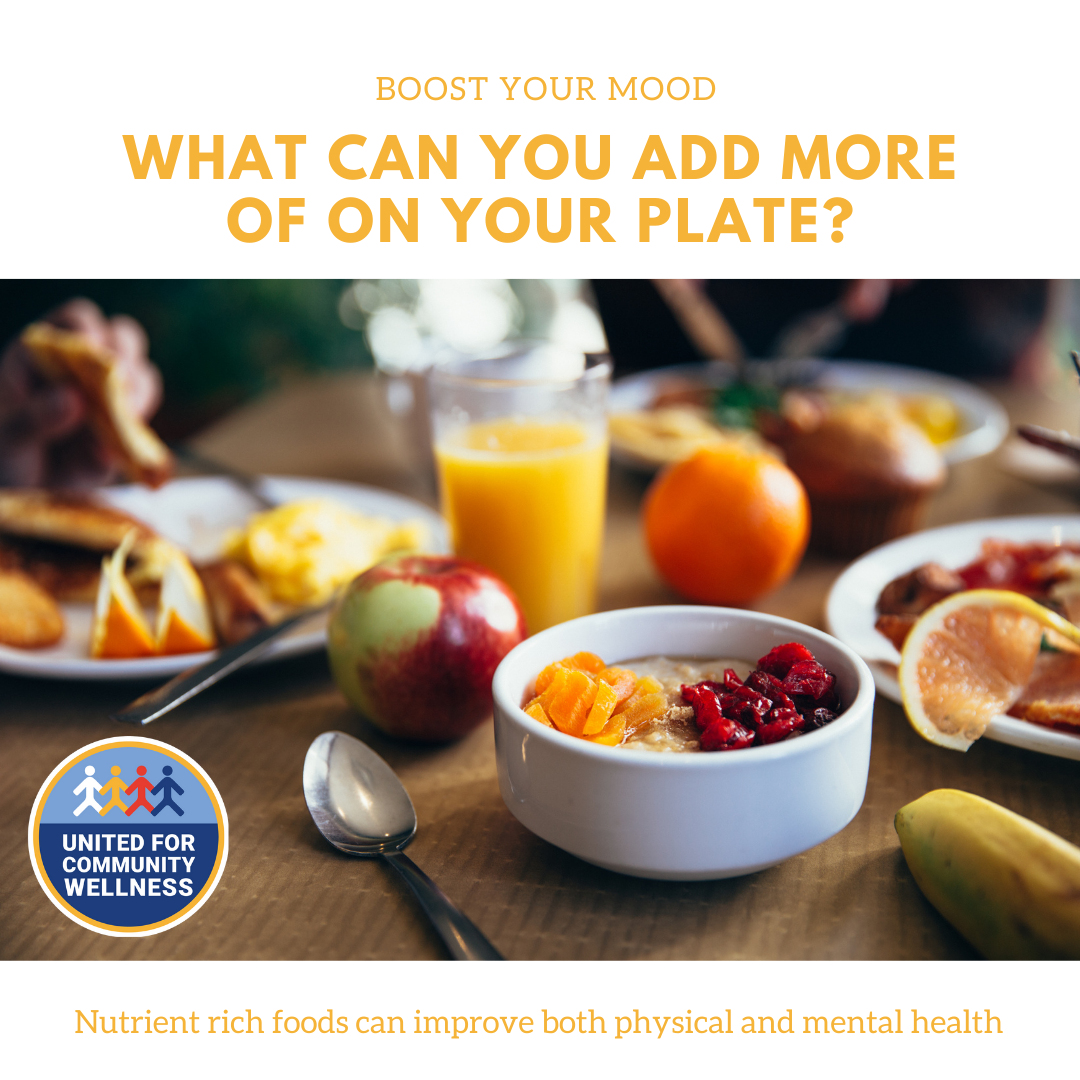
Article/Email/Website:
Studies show that the foods we eat influence our overall mood and well-being. With winter approaching and the days becoming shorter why not load up on nutrient dense, mood boosting foods?
A 2018 study found that individuals who consumed the most Vitamin C had the lowest reported feelings of confusion, depression, and anger.1 Foods high in Vitamin C include oranges, strawberries, lemons, bell peppers and broccoli. An easy way to incorporate these into your diet can be as simple as adding a couple slices of lemon to a glass of water.
Living in Central Wisconsin makes it hard to always get enough Vitamin D, otherwise known as the “sunshine vitamin”. Low levels of Vitamin D are related to depression and Seasonal Affective Disorder.2 Supplementing Vitamin D during the winter might be a good option to help stay positive on dreary days.
One of the best mood boosting foods can be found in grocery stores year-round. Incorporating a handful of blueberries into your daily meal routine is a sure way to avoid despair. It is proven that the flavonoids in blueberries can improve your mood.3
References:
1. Anitra C.C, Bozonet S.M, Pullar J.M, Vissers C.M, High Vitamin C Status Is Associated with Elevated Mood in Male Tertiary Students, Antioxidants (Basel), 2018 Jul; 7(7): 91. Published online 2018 Jul 16. doi: 10.3390/antiox7070091
2. Bryn M, Estwing Ferrans C, Kouba J, Penckofer S, Vitamin D and Depression: Where is all the Sunshine, Issues Ment Health Nurs, Author Manuscript; available in PMC 2011 Jun 1, Published in final edited form as: Issues Ment Health Nurs: 2010 Jun; 31(6): 385-393. doi: 10.3109/01612840903437657
3. Khalid, S.; Barfoot, K.L.; May, G.; Lamport, D.J.; Reynolds, S.A.; Williams, C.M. Effects of Acute Blueberry Flavonoids on Mood in Children and Young Adults. Nutrients 2017, 9, 158.
Video:
https://youtu.be/Hmrdk3g7ESU
Challenge:
Try a recipe with blueberries! Incorporating a handful of blueberries a day is a great option to boost your mood!
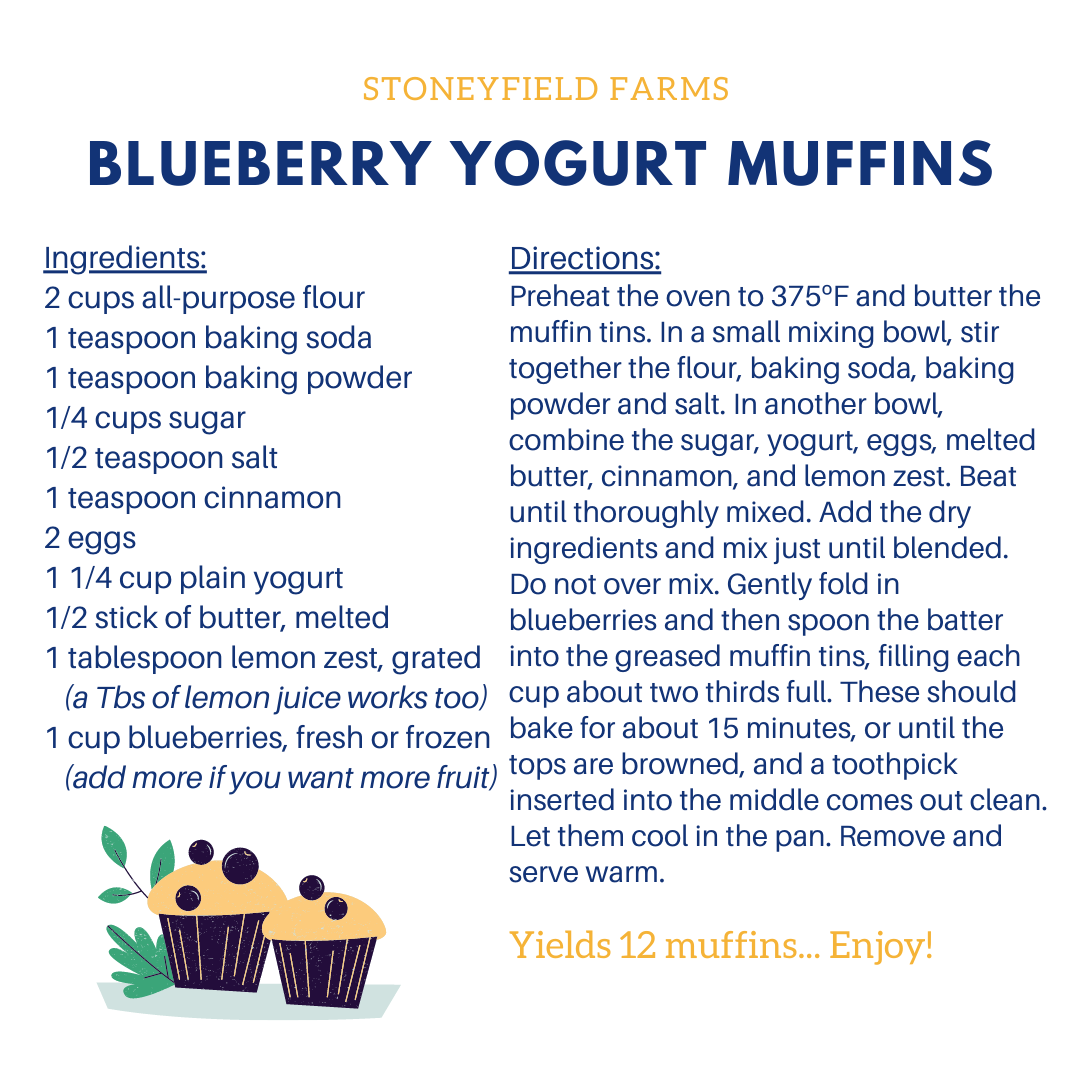
Positive Self Talk
.png)
How we talk to ourselves matters. The narrative inside our brain influences our feelings and behaviors. When we blame ourselves, when we focus on the negative aspects of a situation, when we expect the worst, when we see things as either good or bad – with no in between, and when we are just mean to ourselves and others in our head – we create negative emotions and irritable behavior.
When you frame your experiences with a more positive slant and optimistic outlook you can have significant health and mental health benefits.
- Recognize your own negative self-talk.
- Check in with your feelings
- Consider ways to flip the negative thoughts to neutral or positive thoughts.
- Try to look at the situation from a different perspective.
- Find the humor in situations.
- Surround yourself with positive people.
- Practice giving yourself positive affirmations.
Developing a positive growth mindset is a process. It takes practice – but it is worth it!
Article
https://www.healthline.com/health/positive-self-talk
Silver Lining
Intro Post:
A silver lining is a comforting or hopeful aspect of an otherwise desperate or unhappy situation.
COVID-19 and the restrictions and consequences associated with it are definitely an unhappy situation!
Luckily, there are some silver linings.
- Nature – walks and activities outside
- Time with immediate family
- Slowing down
- Technology and access to information and services in a new way
- Happier pets!
- Connecting with people in different ways
- The gift of awareness - Not taking things for granted
- Communities pulling together to help others
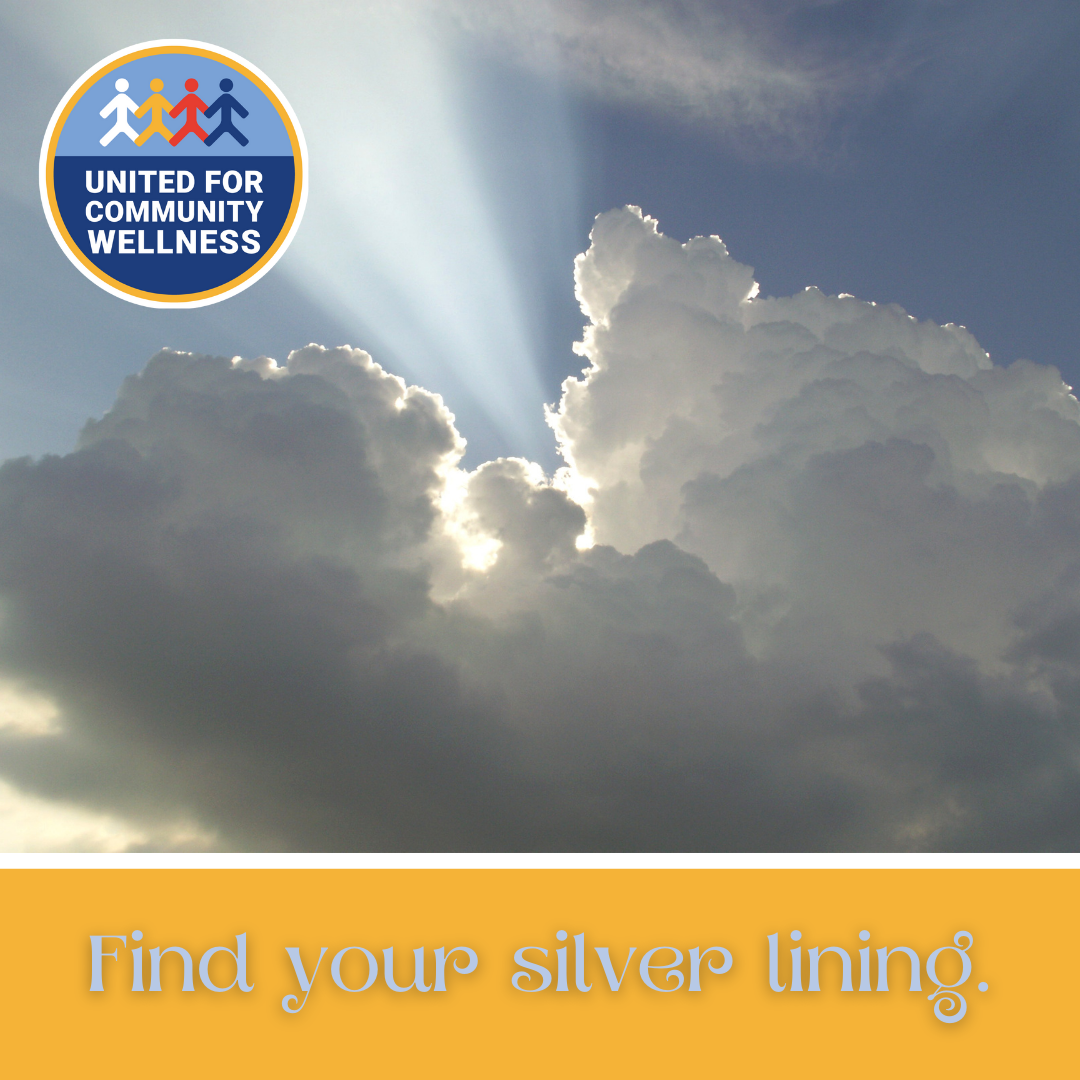
Video:
Pandemic: A message of hope
Action Post:
What is your silver lining?
Website/Article/Email:
Sleep
Intro Post:
Sleep is self-care. Don’t get overtired.
.png)
Video:
Is your mind racing when you try to fall asleep?
Try this breathing technique to help you nod off.
Website/Article/Email:
Invest in Rest
One in three adults don’t get enough sleep (CDC). Who doesn't love to sleep? But getting the right amount of sleep can be difficult. It's easy to let work, talking to friends, or binge-watching television gets in the way of sleep.
A good night’s sleep has a significant impact on our health. Good sleep helps us feel more energized, less stressed, and able to perform better mentally. Healthy habits do help us fall asleep and stay asleep.
Are you struggling with quality sleep?
Try the following tips from the American Academy of Sleep Medicine:
- Keep a consistent sleep schedule, even on weekends or during vacations.
- Establish a relaxing bedtime routine. Keep the room comfortable & at a cool temperature.
- Limit exposure to bright light in the evenings. Turn off electronic devices at least 30 minutes before bedtime.
- Avoid a large meal before bedtime. If you are hungry at night, eat a light, healthy snack.
- Exercise regularly and maintain a healthy diet. Try to avoid exercising 2 -3 hours before bed.
- Limit caffeine during the day, avoid consuming alcohol before bedtime & reduce fluid intake before bedtime.
